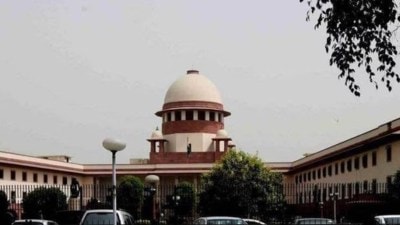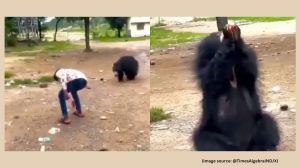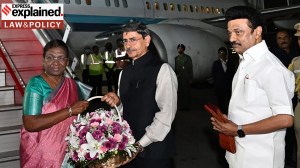Has anybody looked into the cause of BSP split?
Uttar Pradesh Assembly speaker Kesari Nath Tripathi was unanimously elected to the post in March last year. Members of the House cutting acr...

Uttar Pradesh Assembly speaker Kesari Nath Tripathi was unanimously elected to the post in March last year. Members of the House cutting across party lines eulogised his unblemished performance during his tenure of two years in the same capacity in 1991.
A year later, politicians and the media charge him with partisan behaviour after he decided to recognise the rebel BSP group as a separate outfit on March 23. The BSP has decided to challenge his ruling in the court. Tripathi spoke to Amit Sharma. Excerpts:
None has read my entire ruling and those with little legal knowledge are making comments on my decision. I had told the BSP lawyer that I had no personal interest and if he desired the case could be transferred to the Privilege Committee. But they said they had no doubt over my conduct. There was a split in theBSP on October 21, 1997 before the commencement of the sitting of the House and as a result, a group consisting of 26 MLAs was formed. This group was later recognised as the Janatantrik BSP.
There was no political motive behind my decision. Why didn’t anybody raise a finger on similar cases in assemblies in Rajasthan, Andhra Pradesh and also in the Lok Sabha (JMM)? Singling out Uttar Pradesh smacks of political malice.
Newspapers play an important role in building opinion of the people and editors should desist from writing editorials without full knowledge of law and the Act. Unfortunately, there are a number of unworthy editors attached to some largely circulated newspapers. Their irresponsible behaviour amounts to character assassination. Freedom of expression does not permit anyone to commit breach of House. It is a different matter that the legislature may take a lenientview.
Not at all. Has anybody tried to look into the cause of the split? The immediate cause of the split was the directive to kill the Speaker by BSP leader Mayawati and this was corroborated by the bloody violence on the floor of the House on October 21, 1997.
The law-abiding MLAs did not abide by this directive.
My decision is strictly according to law for three reasons. One, the statement made on the floor of the House by Markandya Chand (A BSP rebel) that the group had the strength of 26. Two, nine MLAs besides the 12 had given affidavits pledging their support to the break-away group. The copies were sent to BSP leader R.K. Chaudhary on March 17 but his reply never came. Thirdly, the BSP counsel never debated on the split. I did not have any option except to believe that the affidavits were right. There is a maxim that where the law requires a thing to be done in a particular manner ithas to be done in that manner or not at all.
I did not take unusual time. Being a tribunal, I have to hear arguments of both sides. The elections to the council seats in UP were held in the last week of December and then came the Lok Sabha elections. I, with an intention to decide on the case early, had declared that from February 24, there would be a day-to-day hearing and then reserved my verdict for some time. It’s wrong to believe that I kept the case hanging to favour the Kalyan Government. I am a victim of adverse publicity but it’s not proper for me to go to the public to clarify my stand, for, I am a tribunal and the proceedings were quasi-legal in nature. Vicious politics is destroying the legislature. If you abuse your head, you abuse yourself.
Under the Act, none but the Speaker should have the authority to dispose of cases. But, the Act certainly needs a new approach. There are many loopholes which should be plugged.
As a matter of law and for a complete understanding between the powers of the judiciary and legislature, there should be a healthy debate. Under special circumstances, I agreed to abide by the Supreme Court order of a composite floor test but there should be a debate on this sensitive issue. This does not mean any disrespect to judiciary which I cannot even think of being an active advocate for more than 40 years.
Photos




- 01
- 02
- 03
- 04
- 05



























